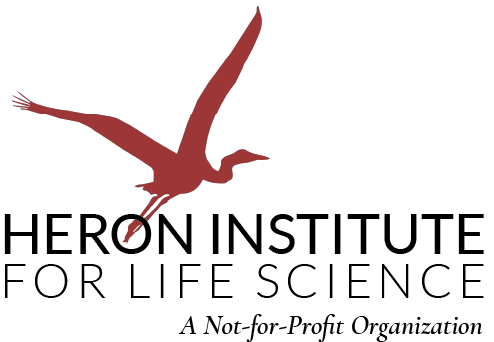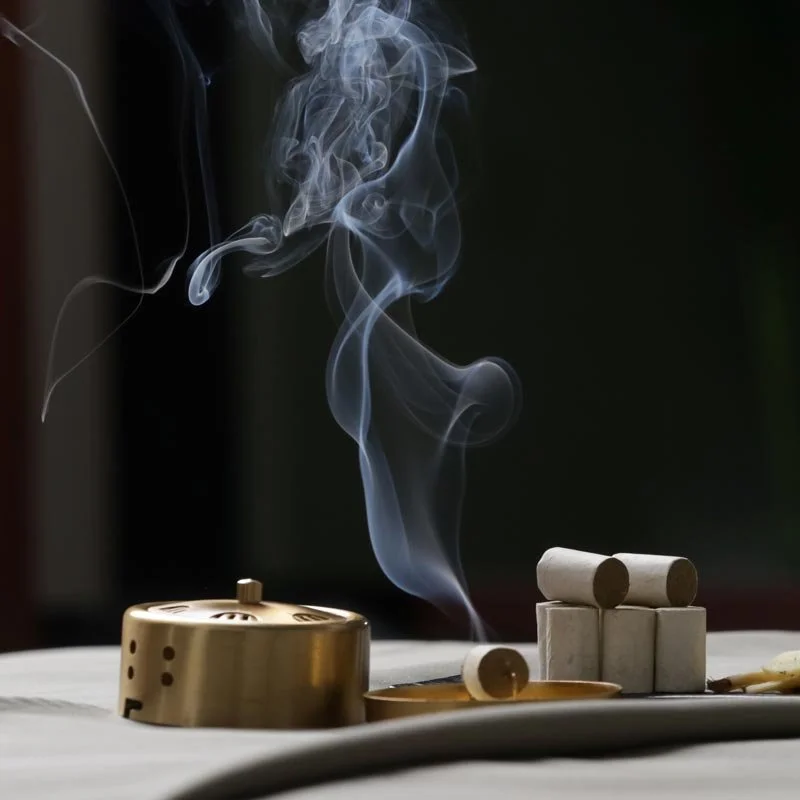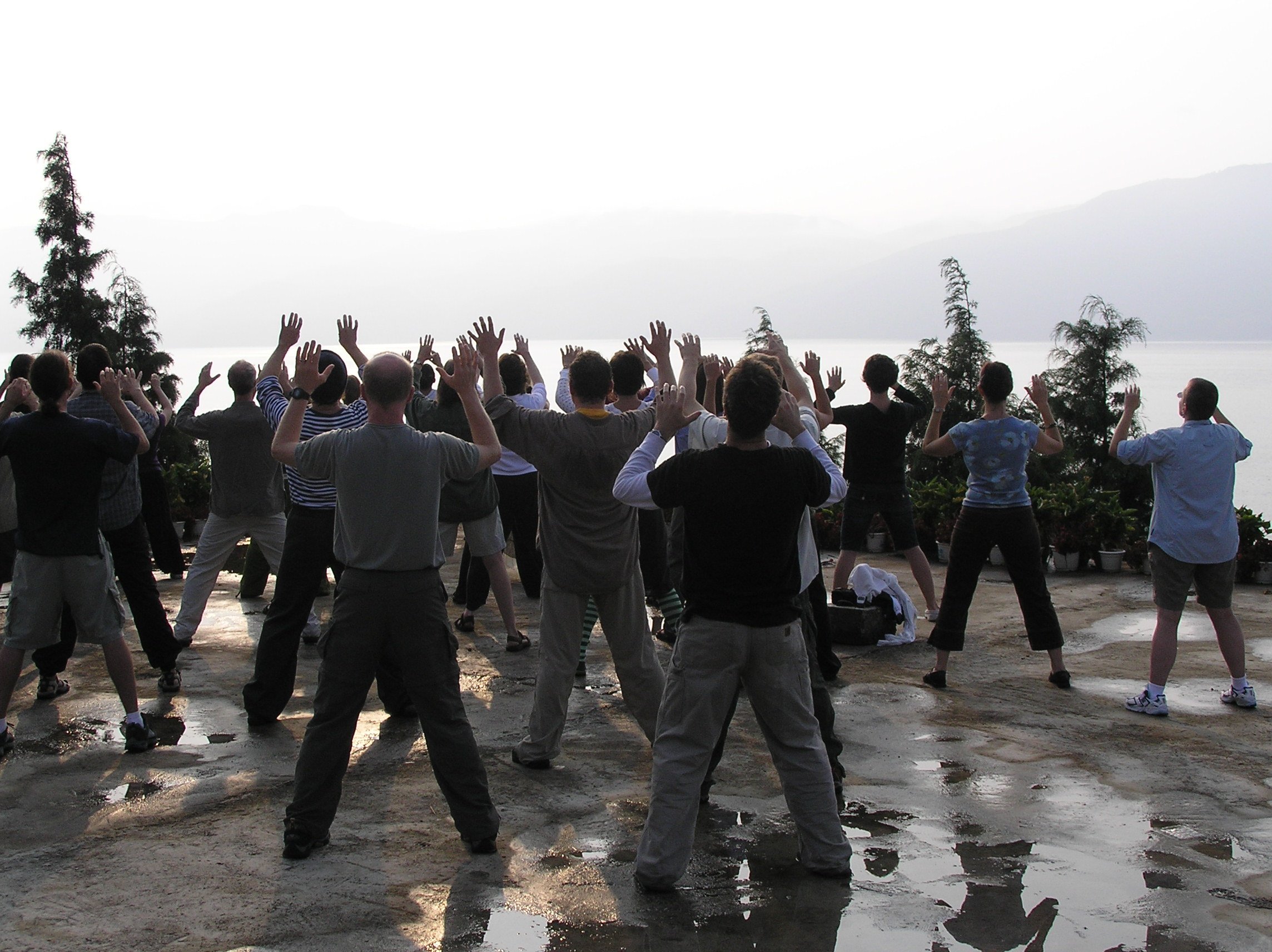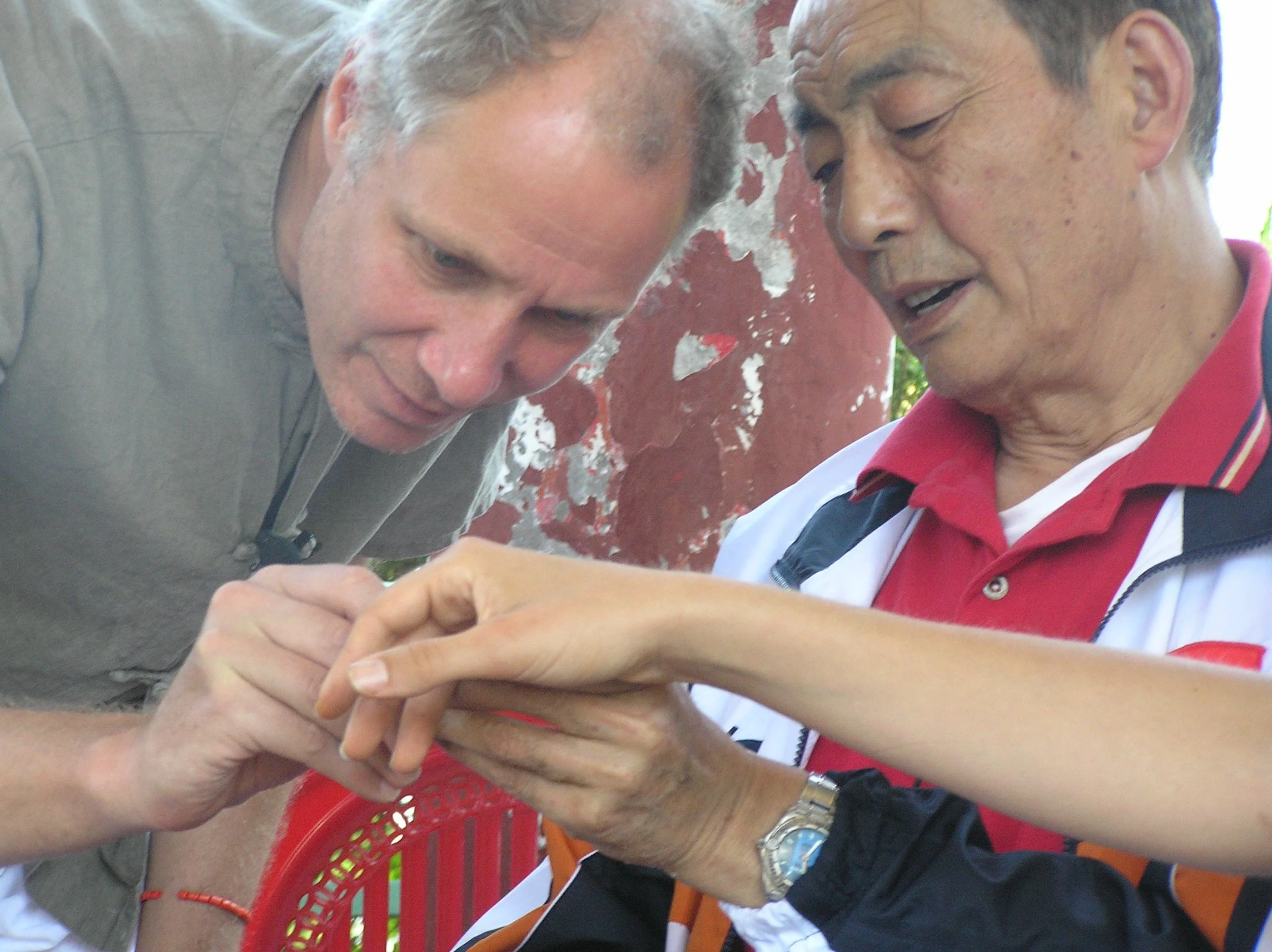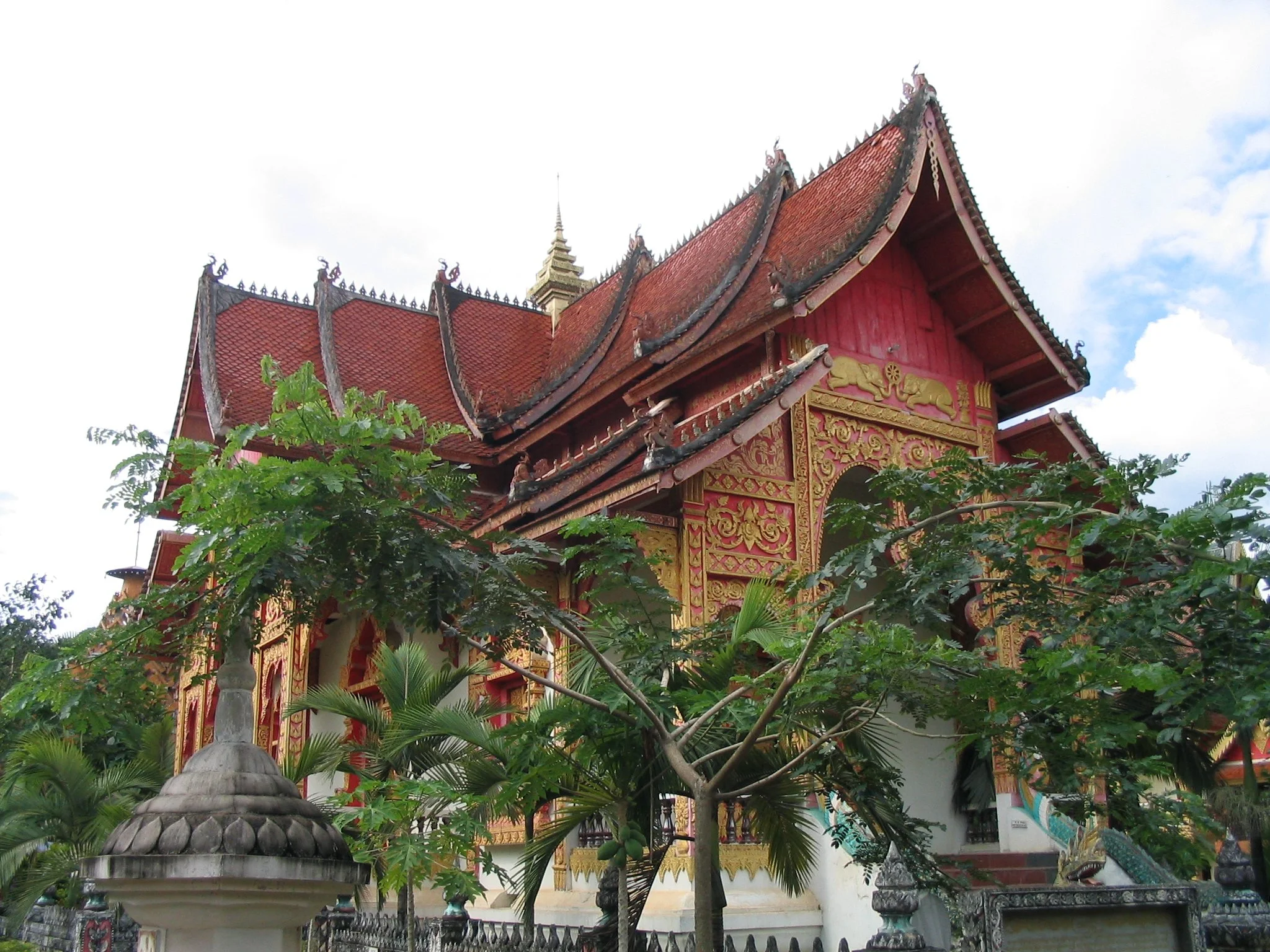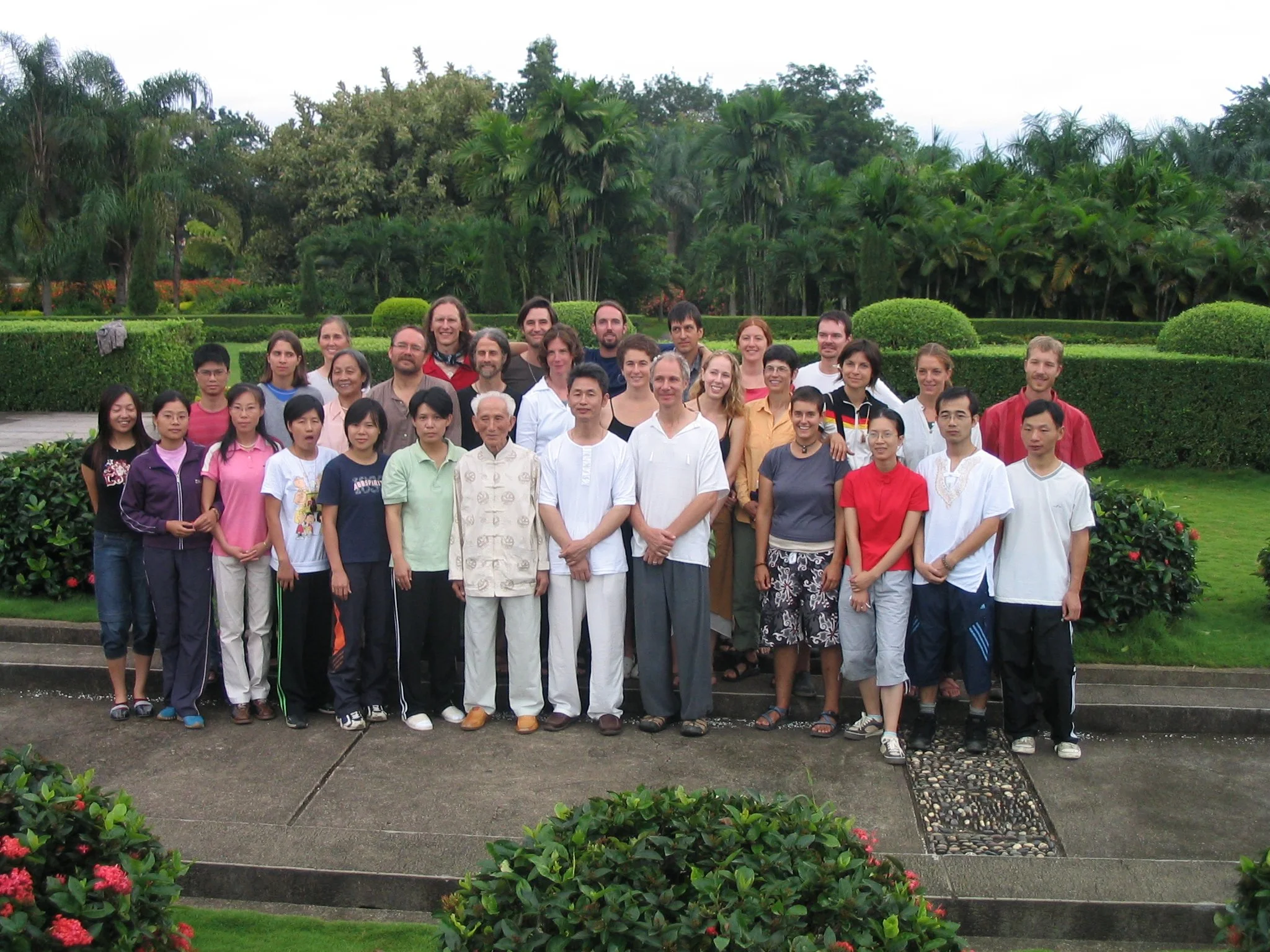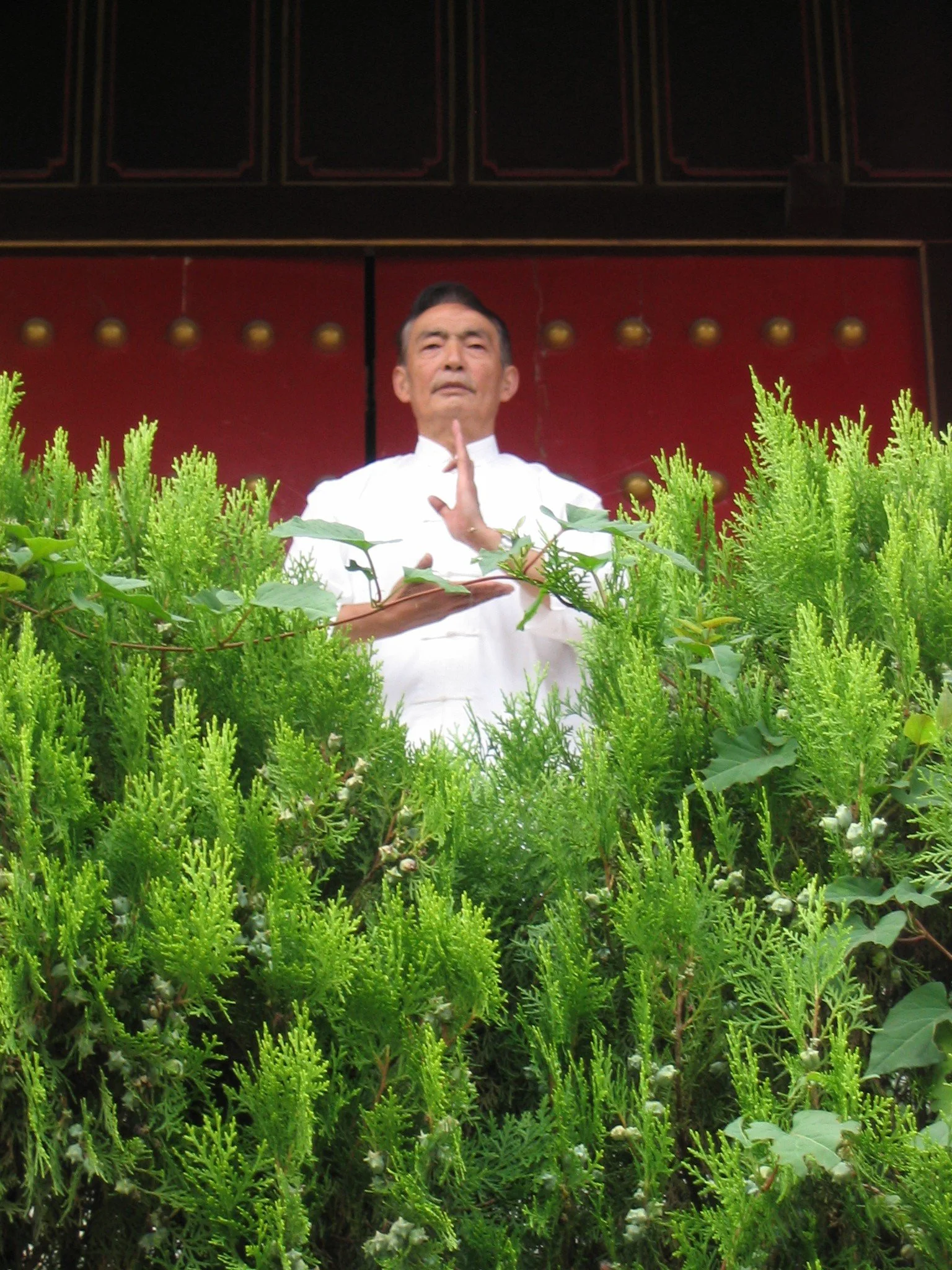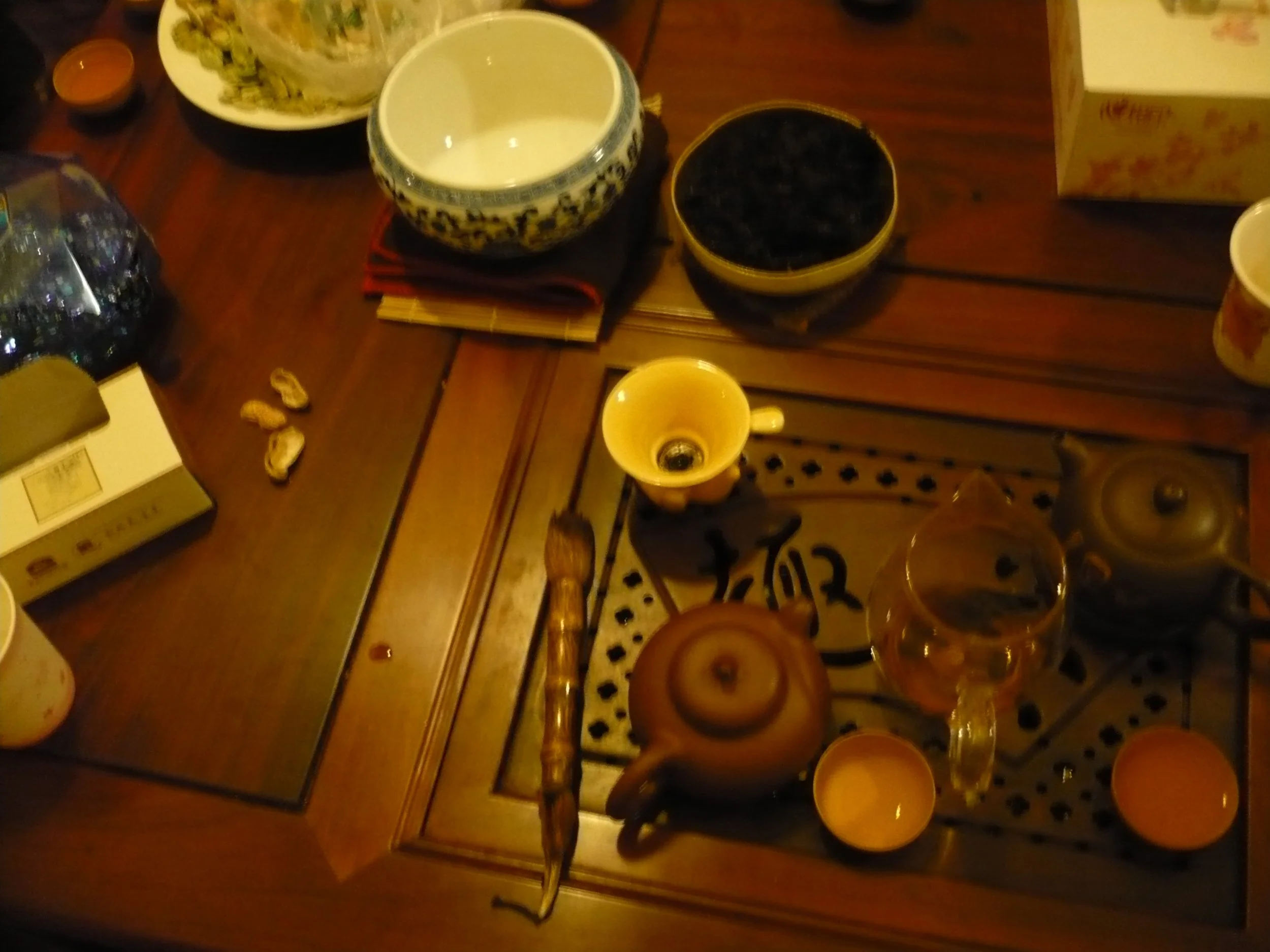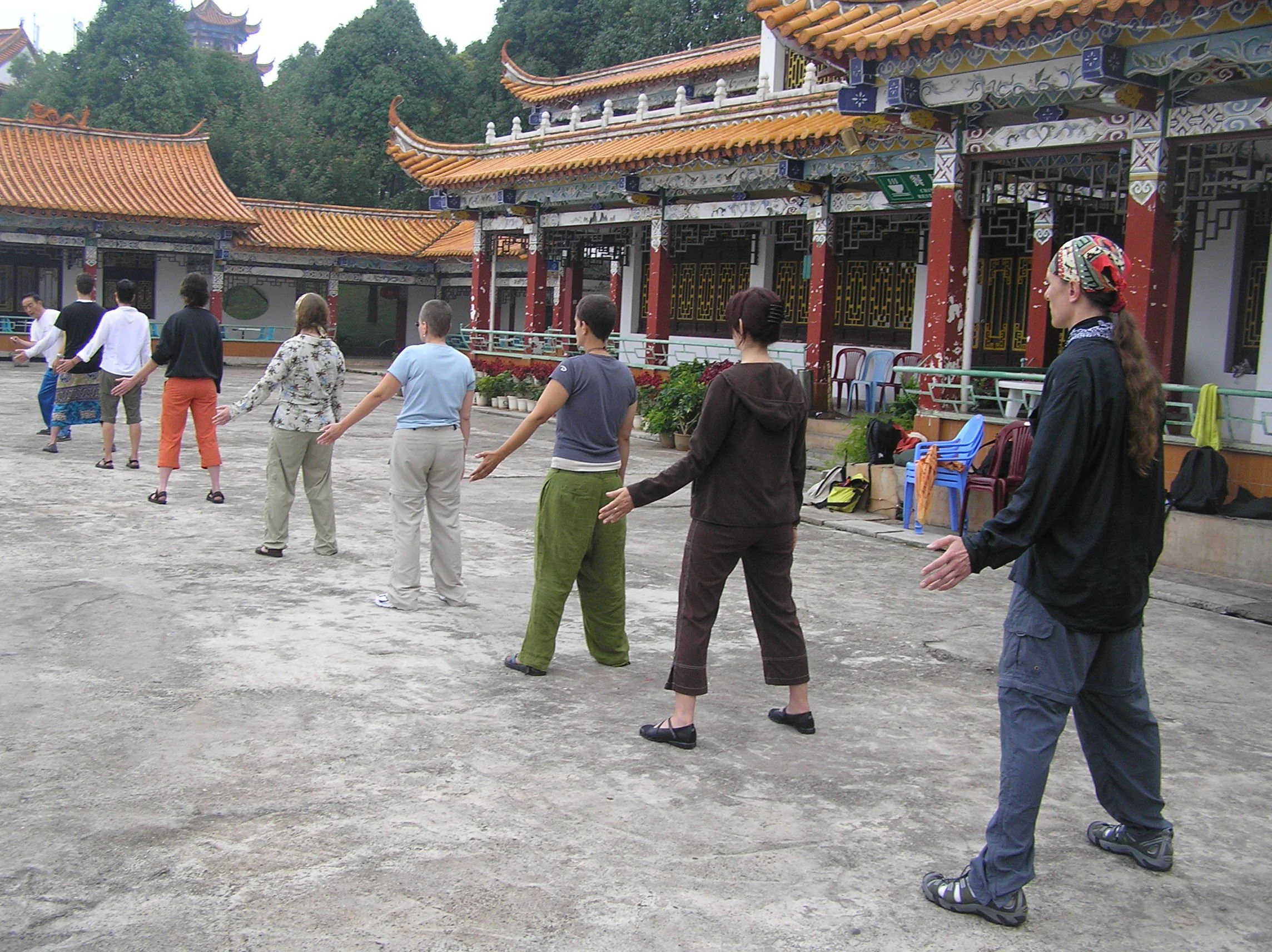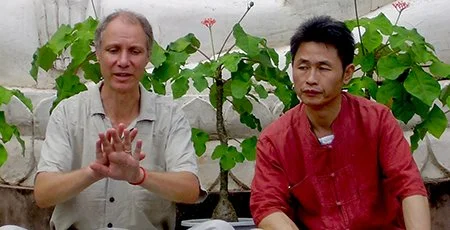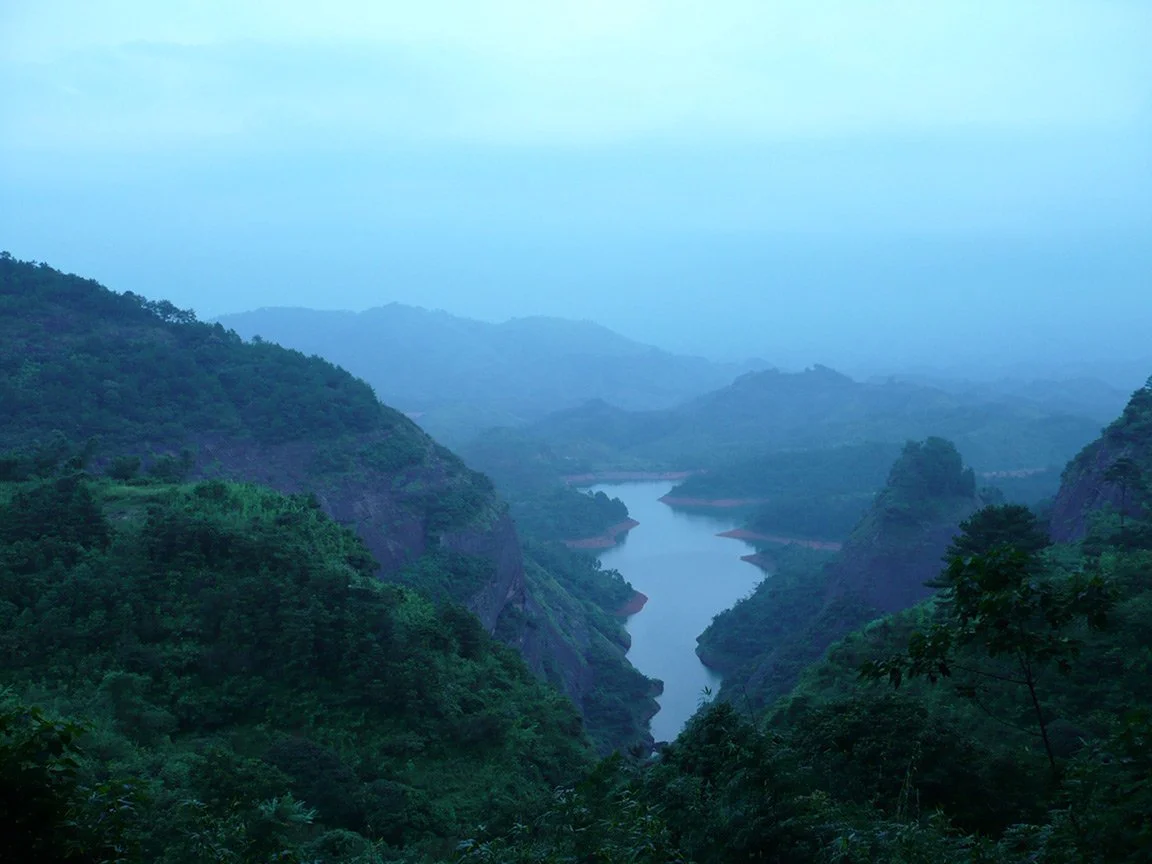
Sacred Mountain Summer Retreat
2024
STUDYING TRADITIONAL CHINESE LIFE SCIENCE
The Sacred Mountain Summer Retreat 2024 was a great success! Thank you to all who joined the Heron Institute on this year's retreat. There is no information on whether a retreat will be held in 2025. Be sure to join the mailing list at our affiliate ClassicalChineseMedicine.org for news and announcements.
Qigong, Chinese Medicine, Daoist Moxibustion, and Chinese Tea Arts
With Heiner Fruehauf, Wang Qingyu, Zou Hui, and Yang Tailun
Organized by Heron Institute
September 8-22, 2024
Study Puzhao Buddhist Temple at Mt. Qingcheng, near Chengdu, Sichuan province
About Sacred Mountain Retreat
Traditional culture is being rediscovered as an immensely rich fountain of personal and scientific inspiration.
China is one of the world's great quarries of traditional knowledge. Chinese wisdom, however, is highly personalized and can rarely be found in an institutionalized setting. It is still primarily through oral transmission that the gnostic arts and sciences of China are passed on.
Dr. Heiner Fruehauf created the Sacred Mountain Retreat Program in 1994 to facilitate a direct contact to this source and has been bringing motivated groups to China ever since. This year’s program is primarily designed for students and practitioners with an existing background in the Jinjing Qigong system. Various movement, walking and meditation forms will be reviewed and deepened every morning and evening. Another focus of this year’s trip will be a comprehensive introduction to the Hetu Luoshu system of moxibustion, a forgotten therapeutic system of Daoist medicine.
The program has purposefully been designed around the sacred mountains of China. Since time immemorial, the lush “yin” quality of the valleys of Hubei and Sichuan, marked by cascading waterfalls and an abundance of herbal foliage, and the commanding “yang” presence of 18,000-25,000 ft. peaks has attracted many seekers of the Way. Even the legendary Yellow Emperor himself is said to have traveled to Western China to seek instruction from local hermits. Due to the protected setting of these sites, many traditional arts have survived more unscathed here than anywhere else in China.
Educational Program
Three Main Areas of Focus
Nourishing Life Practices
Prof. Wang Qingyu is Heiner’s most influential teacher in the field of traditional Chinese culture and the associated arts of nourishing life. He is 87 years old this year and will be in retreat at Mt. Qingcheng in September to deepen his own practice. As lineage holder of the Jinjing School of Qigong he will supervise the transmission of the Jinjing Shisi Shi (Fourteen Movements of the Jinjing School), the most important long form of classical Jinjing Qigong. This comprehensive exercise blends the effervescent spirit and the animated movements of the Shaolin Yijinjing “Transform Every Fiber in Your Body Classic” with the age-old art of life-spring renewal known as Daoist inner alchemy. In addition, other movement forms of the Jinjing Gong Lineage will be practiced and reviewed. In the evenings, Heiner will lead meditation and chanting sessions drawn from a variety of traditional cultivation systems.
A Comprehensive Introduction to the Hetu Luoshu System of Daoist Moxibustion
We will have the great fortune of spending time with some of Heiner’s most influential Chinese teachers and colleagues, who will share their insights into a variety of lineages carrying the genius and effervescence of traditional Chinese culture. This includes a comprehensive introduction to the theory and practice of a Daoist moxibustion system by Mrs. Zou Hui, a lay practitioner of Chinese longevity traditions who has dedicated her life to the preservation and transmission of this unique therapy.
In their quest to restore the clinical power of moxa, a Chinese medicine modality that was once considered more essential than acupuncture, Mrs. Zou and her husband discovered the Daoist Hetu Luoshu moxibustion system in the mountains of Sichuan and have been teaching and practicing this highly effective technique ever since. Their quest to source the highest quality Aiye (mugwort/artemisia) further caused them to embark on the journey of reviving the traditional mugwort fields surrounding the scholar-physician Li Shizhen’s home in Qichun, Hubei. Qichun has been considered the appropriate terroir for medicinal grade mugwort since the publication of Li’s authoritative work on medicinal substances, Bencao gangmu (Essentials of Materia Medica), in the year 1596. The transmission of Hetu Luoshu therapy by Mrs. Zou and her staff has therefore purposefully been set at her moxa production facility near Li Shizhen’s ancestral home.
An Introduction to the Intricacies of Tea Philosophy and the Enjoyment of Tea
Like moxa, tea is an important component of Chinese culture and Chinese herbal medicine. Heiner has cultivated a longstanding friendship with Mr. Yang Tailun, a renowned tea master and gentleman farmer who has spent a lifetime drinking tea and researching everything there is to know about China’s premier medicinal plant. He is currently in the process of creating a tea museum on the outskirts of Chengdu. During two days of savoring rare and precious teas in the environs of his rural estate, Master Yang will share unique insights into the appreciation of tea as a gateway to Chinese culture, tea as an everyday health ritual, and tea as a device for spiritual contemplation.
Faculty
The various stages of the Program will be organized and conducted by Prof. Heiner Fruehauf, and will include special teaching sessions by Prof. Wang Qingyu, Mrs. Zou Hui, and Mr. Yang Tailun.
Heiner Fruehauf, PhD, LAc has been trained in the field of East Asian Languages and Civilizations at the University of Chicago. He has lived in China and Japan for seven years, speaks fluent Chinese, and has been teaching and practicing the Chinese healing arts since 1980. He is director of the Heron Institute, and the Founding Professor of the College of Classical Chinese Medicine at National University of Natural Medicine in Portland, Oregon. He will lecture or translate during all teaching sessions. More about Heiner Fruehauf ››
Prof. Wang Qingyu was born into a traditional martial arts family, and trained in the classical tradition of Chinese energy work around the hermitages and monasteries of China’s sacred mountains since age ten. He is the official lineage holder of the Jinjing School of Qigong, professor of martial arts and Daoist heritage at the Sichuan Academy of Cultural History, and former physician of China’s Olympic diving team. He has authored numerous influential books and articles on Qigong, the traditional arts of nourishing life, and Daoist medicine. More about Wang Qingyu ››
PART I
Qichun, Hubei Province
(6 nights)
The first part of the Retreat will occur near the ancient home of the famous Ming dynasty scholar-physician Li Shizhen. Hubei Province marks the location of the ancient Kingdom of Chu and is known as the land of fish and rice—a region rich in history and water, home to a plethora of culture heroes and a multitude of medicinal plants.
Qichun County has a reputation for being one of China’s ancient Chinese medicine centers. A multitude of famous doctors, educators and artists hail from here, and many Chinese herbs are still being cultivated in this region. Within a 90-minute drive from the bustling city of Wuhan, Qichun has managed to preserve much of its traditional flavor. Remnants of the old town still exist, surrounded by the lush hills and waterways of Hubei, the “Province of Lakes”.
Mrs. Zou and her husband were instrumental in rebuilding the Li Shizhen museum in Qichun and restoring the surrounding mugwort fields, both of which had fallen into a state of disrepair. They were strongly encouraged in this endeavor by Heiner’s long-time friend and colleague Prof. Liu Lihong, who has become China’s best-known champion of classical Chinese medicine since the publication of his celebrated book, Sikao zhongyi (Classical Chinese Medicine). In addition to receiving a complete transmission of the Hetu Luoshu Moxibustion System, participants will have the opportunity to partake in the harvesting and processing of autumnal mugwort.
PART III
Chengdu, Sichuan Province
(4 nights)
On the way back to Chengdu, the group will stay in the vicinity of Mr. Yang’s rural estate for one night.
Our journey will end with two days in Chengdu, where participants can visit the teahouses, Chinese medicine facilities and other local sights of Southwest China’s most convivial city.
PART II
Puzhao Temple at the base of Mt Qingcheng, Sichuan Province
(4 nights)
Sichuan province is recognized as one of the ancient cradles of Chinese Daoism and the associated culture of Chinese longevity practices.
Laozi is said to have spent the last years of his life there, and Zhang Daoling, the founder of Daoism as a monastic form of practice, lived on several of its revered peaks. The Jinjing Gong School of Qigong is also rooted in this region.
The “base camp” for the second part of this year’s trip will once again be Sichuan’s Mt. Qingcheng, a sacred Daoist mountain that forms the cultural and geographic border between the Chinese mainland and Tibet. It is another one of China’s primordial sites where the Chinese quest for perfect health and longevity once began. Since time immemorial, the lush yin energy of this archetypical mountain has attracted many seekers of the Way, and many Buddhist and Daoist lineages trace their origins back to this Chinese outpost of the Himalayas. We will stay at the beautiful Puzhao Si (Temple of Compassionate Radiance), the place where Heiner first studied Qigong in 1990. He has since cultivated a close relationship with the monastery’s current spiritual leader, Abbess Guozheng. Puzhao Temple provides peaceful accommodations with some of the best vegetarian food in all of China, and a wonderful atmosphere in which to practice qigong and study classical arts and medicine. The primary objective of this part of the trip is to visit Prof. Wang Qingyu, Heiner’s main Daoist medicine teacher and the current lineage holder of the Jinjing Gong system of longevity practices. No academic teaching sessions will be conducted during the day in this location. Participants will thus have ample leisure time to explore the environs of the Puzhao Temple and visit some of the nearby monasteries on this sacred Daoist mountain.
Course Details
Date
September 8-22, 2024
ARRIVAL: Sunday, September 8th, arrive by the early afternoon to convene with the group in the city of Wuhan, the capital of Hubei Province.
This will likely require a September 6 departure from the USA or Europe, with a night’s stay in Beijing, Shanghai or Hong Kong on September 7. It is recommended to get an open-jaw ticket, arriving in Wuhan and departing from Chengdu.
Please note: your transportation from Wuhan to Chengdu will be organized and paid for by the Heron Institute as part of the course.
DEPARTURE: Sunday, September 22, depart from Chengdu, the capital of Sichuan Province.
Cost
Total: $4,400
Deposit: $1,500 (non-refundable; must be received by April 1, 2024)
Remaining balance due: on or before June 30, 2024
Passports
Participants’ passports need to be valid until at least March 22, 2025 according to Chinese regulations.
Note: Heron Institute reserves the right to change the itinerary based on the specific needs of each group.
Includes
Transportation within China (Wuhan to Chengdu; to and from the Puzhao Temple and Chengdu)
Room and board (2-4 people per room, depending on availability). Please note that twin and single rooms with a private bathroom are available for an additional cost.
Tuition
Entrance fees
Meals during the length of the retreat
Tea tasting
Does NOT include
Airfare to and from China (flying into Wuhan and out of Chengdu)
Tourist visa fees (approximately $100-150)
Travel/medical insurance
Applications are closed for the 2024 retreat
Be sure to sign up on the mailing list at our affiliate website ClassicalChineseMedicine.org to be notified about future trips.
Questions about Sacred Mountain Retreat?
Send us a message. We’ll get back to you as soon as possible.

